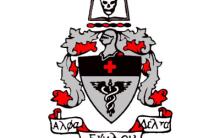Biochemistry and biophysics, closely-related fields, use tools from different sciences to study life.
Biochemistry and biophysics, closely-related fields, use tools from different sciences to study life. Specifically, biochemistry studies the chemical processes and transformations in living organisms, while biophysics applies the theories and methods of physics to questions of biology.
This major is run by the Department of Biological Sciences. Our graduates are exceptionally well prepared for graduate school and to become desirable employees in the biotechnology industry. The curriculum also provides an excellent background for students planning careers in medicine.
Program of Study
Rensselaer’s Biochemistry and Biophysics undergraduate curriculum includes thorough grounding in mathematics, chemistry, and physics, along with modern biochemistry, biophysics, and molecular-level biology. Courses train students in cutting-edge research approaches to biological problems.
As a result of completing this program students will:
- demonstrate proficiency in the foundational topics of biochemistry and biophysics, as well as in cell and molecular biology, genetics and evolution, and ecology and the environment.
- demonstrate additional competency in advanced Biological Sciences topics relative to their academic interest.
- be able to apply skills such as reading primary literature, developing a testable hypothesis, designing an experiment, collecting and analyzing data, and using statistical and quantitative methods.
- be able to communicate effectively on scientific topics in both written and oral forms.
- be able to apply knowledge and skills from across the curriculum to current problems in biological sciences to generate integrative papers, proposals, or other types of projects.
While rigorous, the undergraduate curriculum (128-Credits) offers sufficient flexibility and course choices to allow you to tailor your education.
2025-2026 Academic Year Biochemistry & Biophysics, B.S. Curriculum Template
Most students pursue undergraduate research in faculty laboratories.
Minor requirements for undergraduate students differ depending on the major, since curricula vary in the extent to which they include essential relevant courses. Information on how to minor in Biochemistry and Biophysics can be found in the Course Catalog.
The Arch is a unique approach to education that provides flexibility in the semester schedule, allowing students to pursue professional and personal development opportunities that prepare them to meet the multifaceted challenges of the 21st century. The Arch is a requirement of the Rensselaer curriculum.
Summer Here
During The Arch, students remain on campus for the summer after their sophomore year, taking junior-level classes, and receive focused attention from professors at this pivotal point in their academic progression.
The World Away
Then, students leave the Troy campus for a semester during the traditional junior year—either fall or spring—to pursue their passions in the form of co-ops, internships, civic engagement, research, or international experiences. Students who pursue these opportunities during their academic career are better prepared for future professional careers and graduate school.
For more information regarding the Arch, please visit https://the-arch.rpi.edu
Faculty
The science and engineering faculty members of the Center for Biophysics provide a variety of research opportunities for undergraduate and graduate students enrolled in the Biochemistry and Biophysics degree programs. Faculty members from the Biological Sciences, Biomedical Engineering, Chemical and Biological Engineering, and Chemistry and Chemical Biology Departments who are involved in the teaching of biochemistry and biophysics courses are listed below.
Academic Opportunities

Student researchers play a critical role in the world-changing discovery, innovation, and breakthroughs taking place across campus.

Tri-Beta Biological Honor Society is for undergraduate students dedicated to improving the understanding and appreciation of biological study, and extending the boundaries of human knowledge through scientific research.

Alpha Epsilon Delta is the National Health Preprofessional Honor Society dedicated to the encouragement and recognition of excellence in preprofessional health scholarship.
